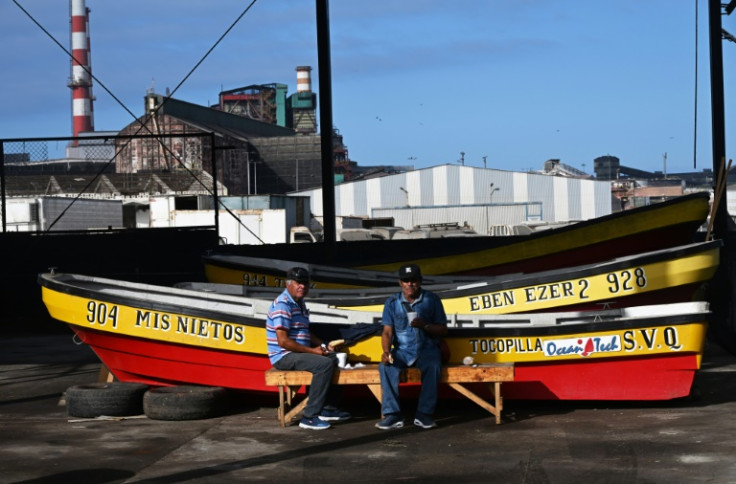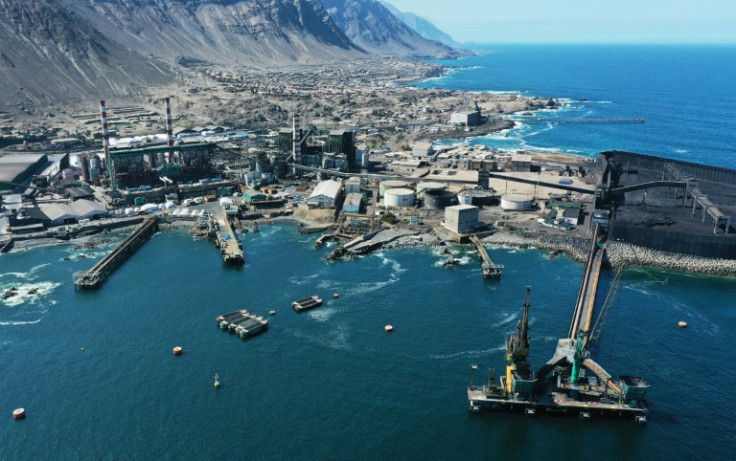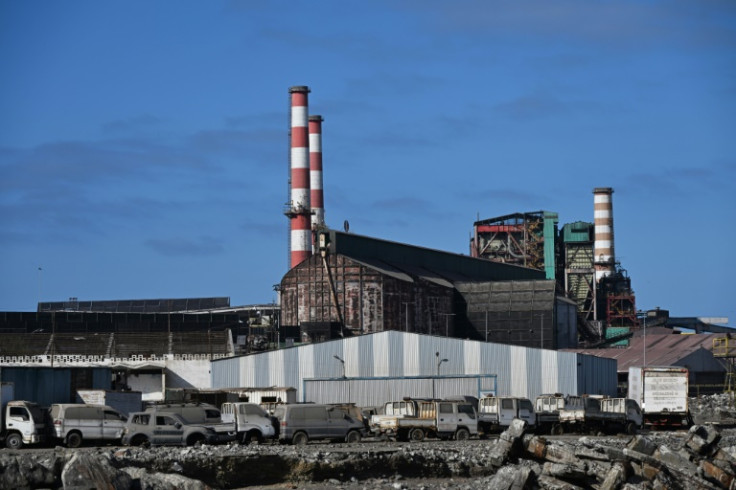Chile's Whirlwind Energy Transition Leaves Workers Stranded

Vultures soar above the mining town of Tocopilla, where Chile's dizzying transition away from coal-fueled energy has left dozens of workers idle and unsure of their future.
"It's like when you are a little old man just waiting for the day you die," said Pedro Castillo, 62, who still goes to work every day as a crane operator at the port, awaiting news on his future after the town's coal industry began to shut down.
Four of the nine coal-fired power plant units that Chile has shuttered since 2019 were situated in Tocopilla, an industrial town wedged between the deep blue Pacific Ocean and arid mountains of the Atacama desert.
That year, Chile, flush in solar and wind energy, vowed to wind up operations of 28 coal plant units by 2040 as part of efforts to leave behind the planet-harming fossil fuel.
President Gabriel Boric, who was elected in 2021, added the goal of reaching 80 percent of renewable energies by 2030.
According to the World Resources Institute, Chile, along with Greece and the United Kingdom, are among the ten countries which have most rapidly cut off coal-fueled electricity.
For the first time, the world pledged to speed up the transition away from fossil fuels at the UN's COP28 climate summit in December.
In Chile, the companies that run the power plants provide support for their employees when they close down, but that does not include hundreds of sub-contractors or indirect jobs that depend on the industry.
For the around fifty people working in a coal plant, there are 150 subcontracted workers and 450 indirect jobs, said Alejandro Ochoa, who deals with environmental issues for the country's most powerful union, the Workers' United Center of Chile (CUT).
"That leaves 600 workers excluded" from support measures, he said.
The crane operator Castillo, who has held the job for four decades, is one of around 60 people still working at the Tocopilla port where coal used to be brought in to power the plants, and where activity has ground almost to a halt.
They are employed by a company sub-contracted by French utility giant Engie -- who owns the two power plants that have since stopped operating in the town of 25,000 residents.
Engie has shifted its focus to wind and solar plants that are being built in Chile at a rapid pace.
Only one coal-fired plant, owned by American group AES, is still running in the town, but is set to shut in March.
"We are leaving but without even knowing in what condition," said Juan Hidalgo, 48, on his final day as quay manager at the port, where he has worked from contract to contract over 15 years.
"No retraining, no relocation, no severance pay, no retirement plan," he reels off his list of grievances, not far from fishermen casting their lines under the gaze of red-headed vultures.
After the closure of its plants, Engie let go of around 100 workers, a third of whom accepted an early retirement plan, while another third was retrained for other jobs and the rest were considered voluntary departures.
The group said it was "conscious" of the "social repercussions" of letting go of its coal businesses, in a comment to AFP.
"The problem in Chile with the (energy) transition is that of sub-contracting," said the CUT union's Ochoa.
"Companies take care of their workers" and manage the decarbonization process with little government planning, he said.
"Public policies arrive late."
During a recent meeting with journalists in Santiago, Energy Minister Diego Pardow acknowledged the challenges and said there was a plan for a "fair socio-ecological transition" in Tocopilla.
This included plans to revitalize the town, aid workers in finding other jobs, or boosting the tourism sector.
Meanwhile, Engie's director general for Chile, Rosaline Corinthien, said there were plans to reconvert its land, after pulling down one plant, with one still to go.
The Chilean energy company Colbun, which has not announced a closure date for its only coal-fired power plant in the country, south of Santiago, is evaluating "the possibility of using other types of fuel" for its power plant like hydrogen or wood pellets.
"Everything that is good for the planet is good but let's not leave people behind," said the crane operator Pedro Castillo.



© Copyright AFP 2025. All rights reserved.




















